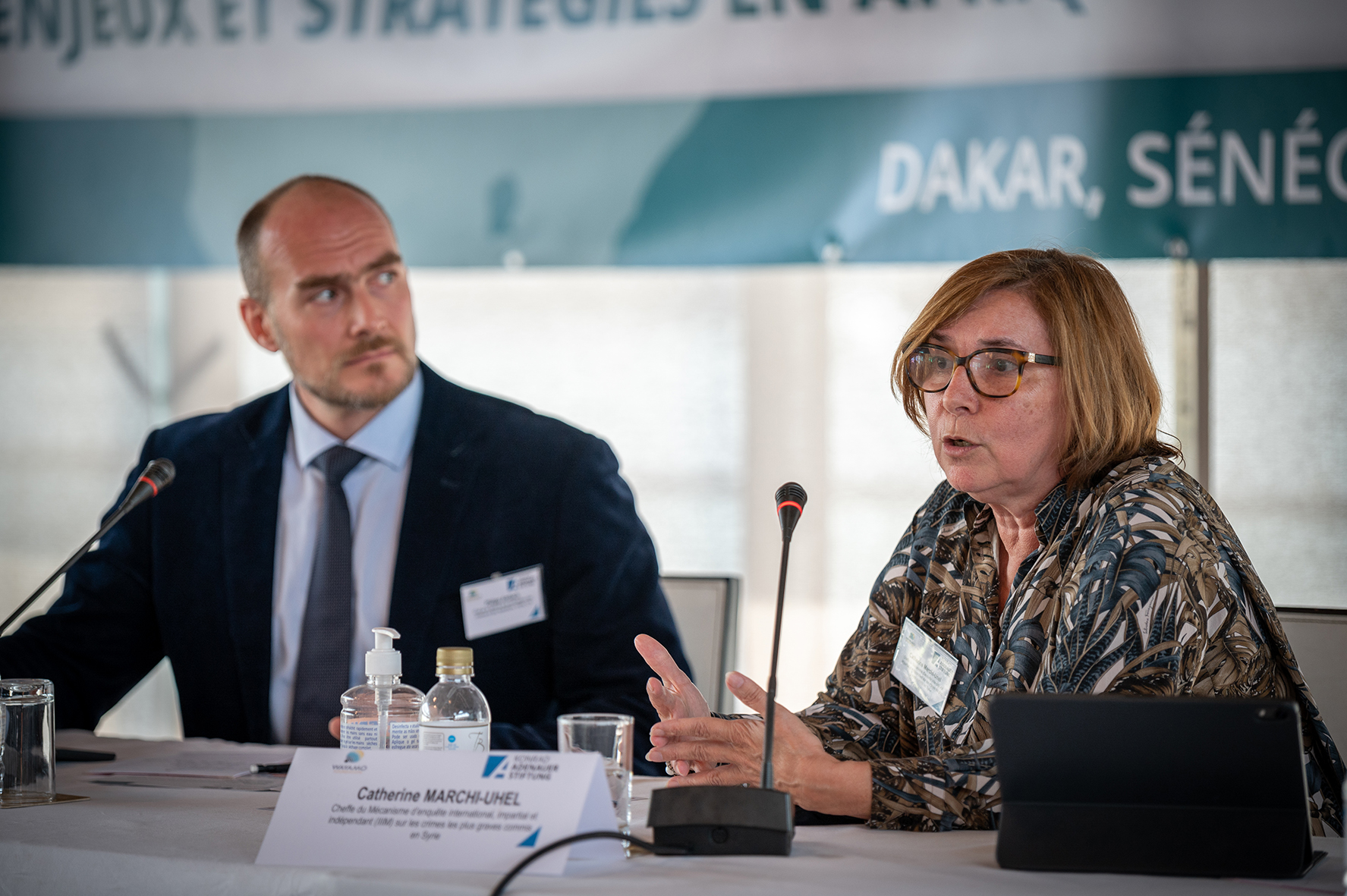
Catherine Marchi-Uhel, the Head of the IIIM, attended an international justice conference on October 26 2021, in Dakar. In conversation with Philipp Ambach, the ICC’s Chief of the Victims Participation and Reparations, the discussion covered the work of the IIIM, its applicability to the context of West Africa, and current features in the international justice scene.
To access the French language conference report, click here.
To access the English language conference report, click here.
Arabic copy to follow shortly.
Le Monde op-ed by Catherine Marchi-Uhel on the ruling by France’s Cour de cassation


In her Le Monde Op-Ed, Head of IIIM Catherine Marchi-Uhel argues that France needs to lift the obstacles that keep victims of crimes against humanity at the doors of French justice.
To read the article in its entirety, click here. The article is in the French language.
Agreement between IIIM and Swedish Government to improve possibilities of investigating serious offences committed in the Syria conflict
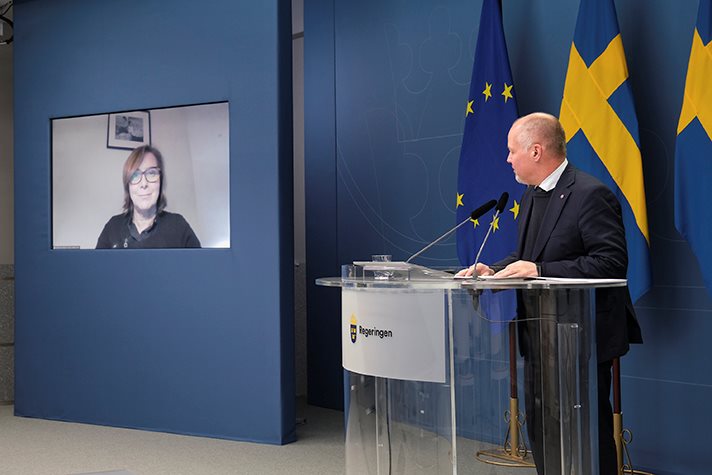

To facilitate efforts by Swedish law enforcement authorities to investigate crimes committed by Da’esh terrorists, the Swedish Government entered into a cooperation agreement with the UN International Impartial and Independent Mechanism.
Sweden enters into a cooperation agreement with the IIIM
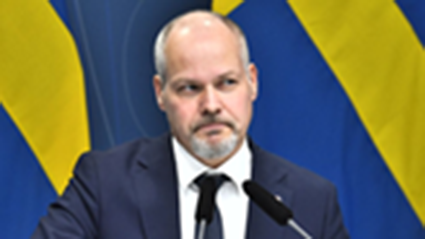

The Cooperation Agreement aims at facilitating efforts by Swedish law enforcement authorities to investigate crimes committed by Da’esh/ISIL terrorists.
Click here to read more. This article is in the Swedish language.
United Nations Security Council Arria-formula meeting on accountability in the Syrian Arab Republic
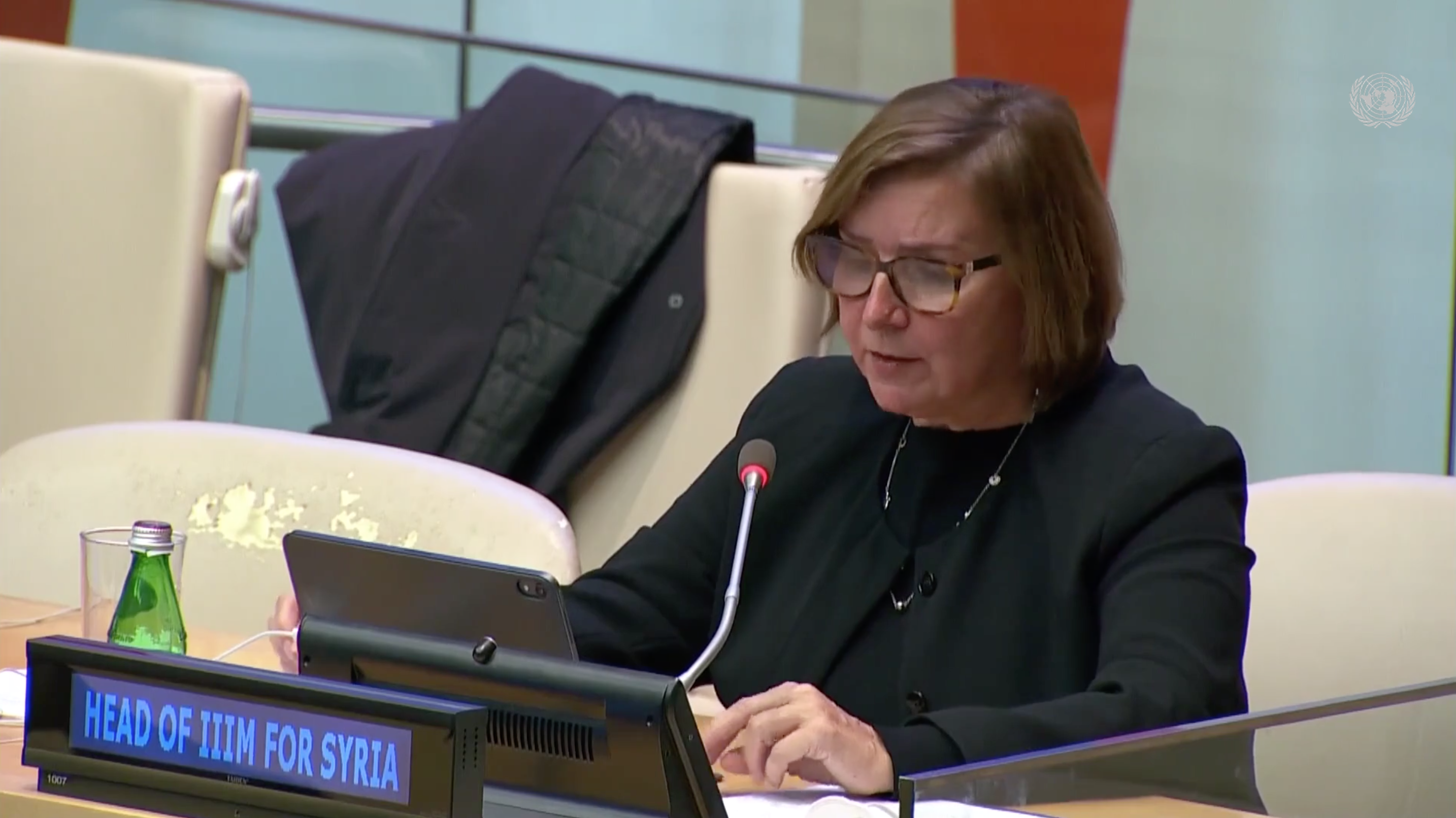

Head of the IIIM briefs the UN Security Council Arria Formula. Sponsored by Council members, Estonia, France, United Kingdom and the United States, with additional co-sponsors Belgium, Canada, Germany, Georgia, Liechtenstein, the Netherlands, Qatar, Sweden and Turkey. On the need for increased efforts by the Council to establish full accountability for the most serious international crimes committed in the Syrian Arab Republic.
For the concept note of this event, click here.
To watch the event’s video, click here.
Leveraging data for accountability: co-creating the future of human rights investigations
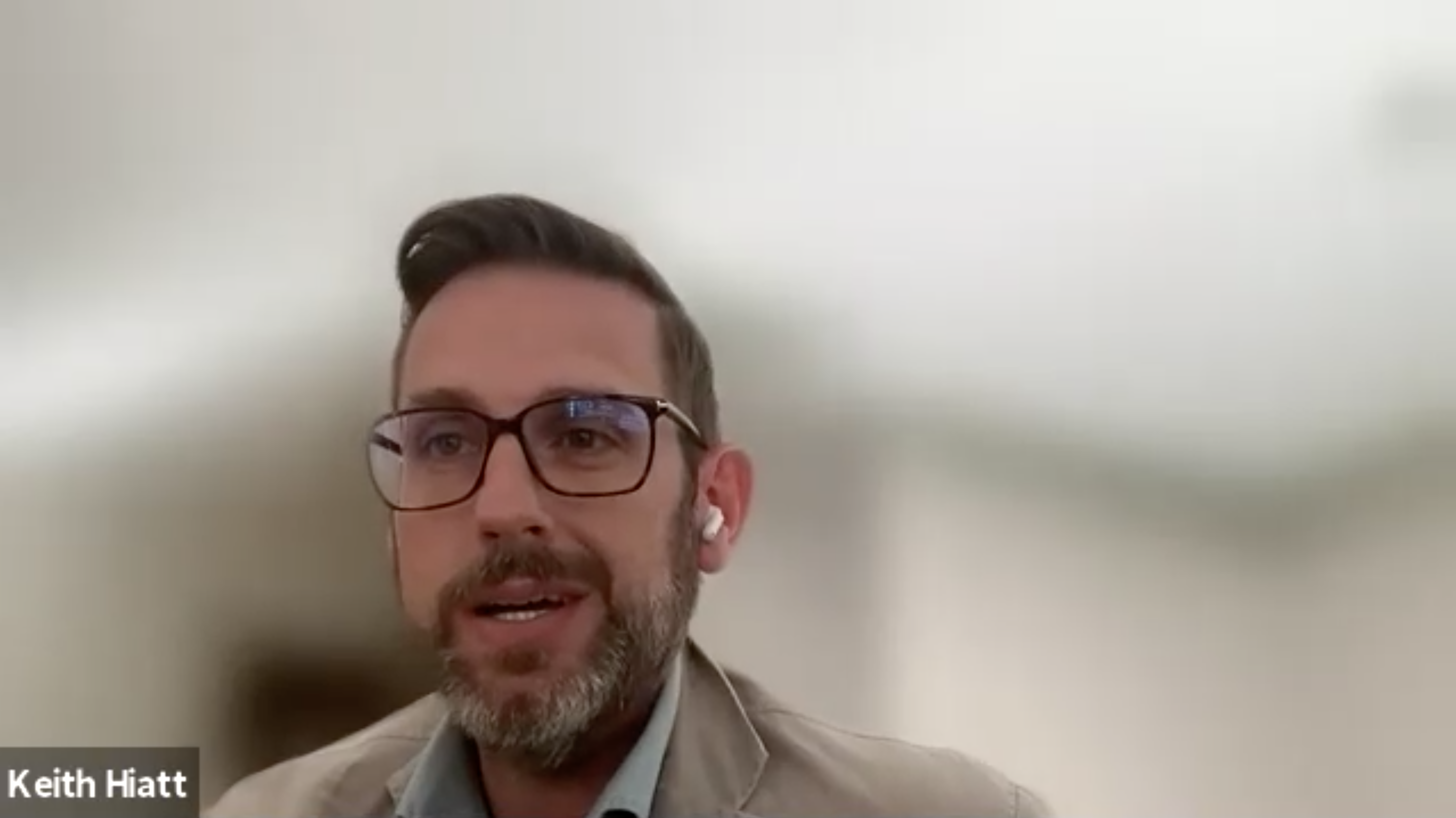

In this Human Rights Council side event, and in his capacity of overseeing the Information and Systems Management (ISMS), Keith Hiatt talks about how the IIIM makes use of computer advances to maximise use of the information it collects.
Catherine Marchi-Uhel on the UN Podcast
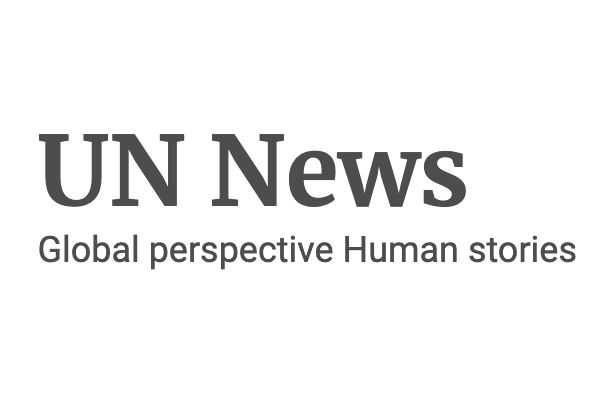

Ten years after the beginning of the Syrian Civil War, the political process continues to be frozen in Syria. In this setting, bringing justice to the victims becomes synonymous with the alleviation of suffering. It is for this reason that the United Nations General Assembly decided in 2016 to create a mechanism, the IIIM, to investigate the most serious crimes committed in the country. Since 2017, the IIIM has worked tirelessly to collect evidence of these crimes before passing it to national courts that might decide to prosecute war crimes committed in Syria. This is how millions of documents are analysed by the team, which is headquartered in a mansion located right next to the Palais des Nations in the Ariana Park in Geneva.
Catherine Marchi-Uhel is the head of the International, Impartial and Independent investigation Mechanism into the most serious crimes committed in Syria, and she is our guest of the week.
Listen to this podcast here. The podcast is in the French language.
la vigie des crimes en Syrie
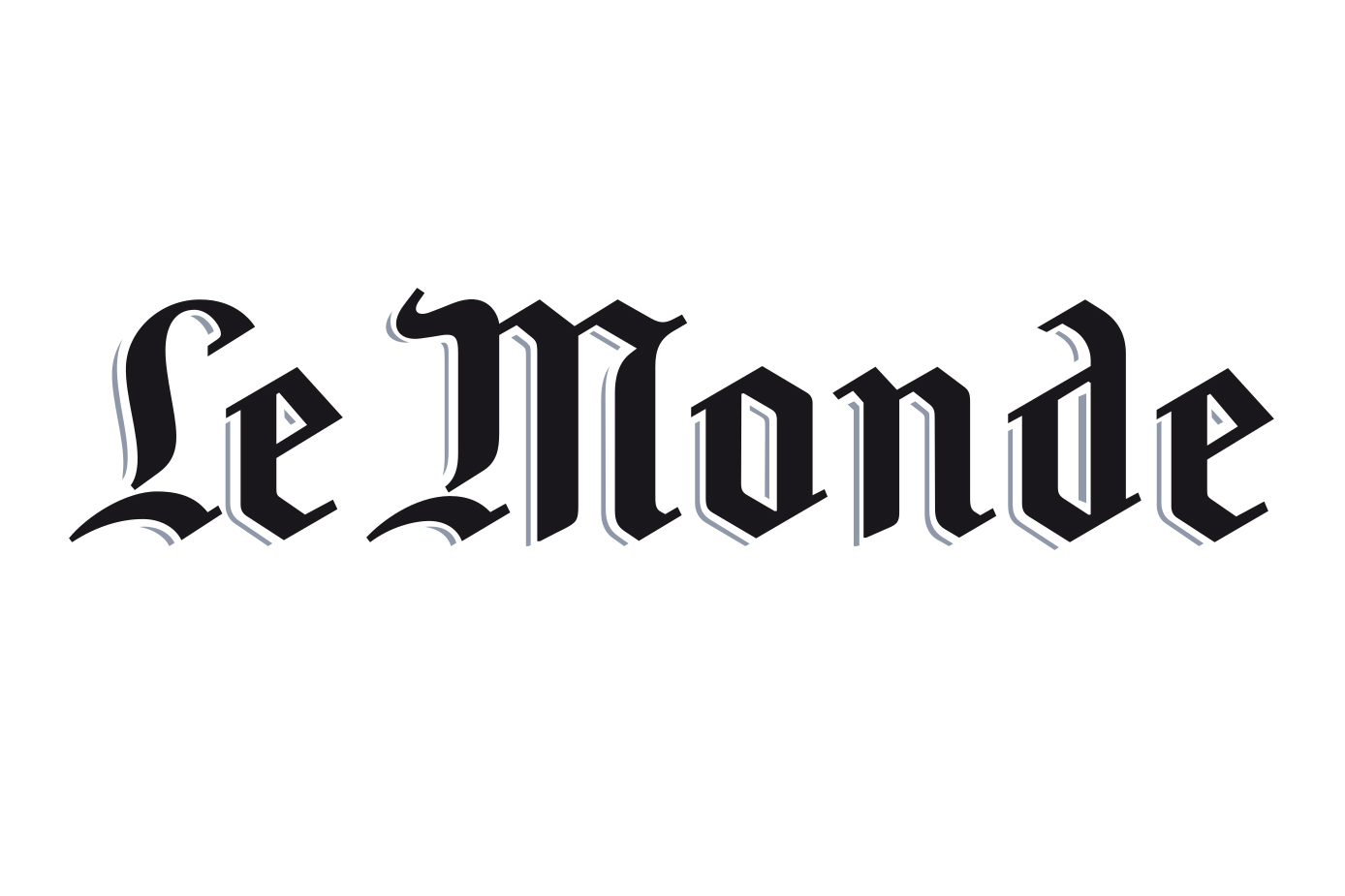

The French newspaper Le Monde recently featured an insightful article on the IIIM, with a focus on its impact as a justice facilitator. In an interview with IIIM Head, Catherine Marchi-Uhel, the article delves into the challenges and achievements of the organization since Ms. Marchi-Uhel assumed the role as its first head in 2017.
Le Monde traces the evolution of the IIIM from its establishment in 2016 to its current pivotal role, serving as crucial support to jurisdictions investigating and prosecuting perpetrators of core international crimes and violations in Syria. Ms. Marchi-Uhel emphasizes, in her interview, the international collaboration that the IIIM has fostered, highlighting the evidence it has meticulously collected and its close engagement with Syria’s civil society, in particular its victim/survivor associations.
For further details of the IIIM’s approach and contribution, we invite you to read the full article here.
Ten years on, will there ever be justice for Syria?


Janine di Giovani writes for Foreign Policy magazine about the IIIM and accountability for crimes committed in Syria.
Read the article here.
Le Monde in an in-depth feature on justice and accountability


This article examines the situation in Syria on the tenth anniversary of the Syrian Civil War. What are the chances for survival for justice and accountability in this environment? And how can the IIIM contribute?
To read the article, click here. The article is in the French language.
